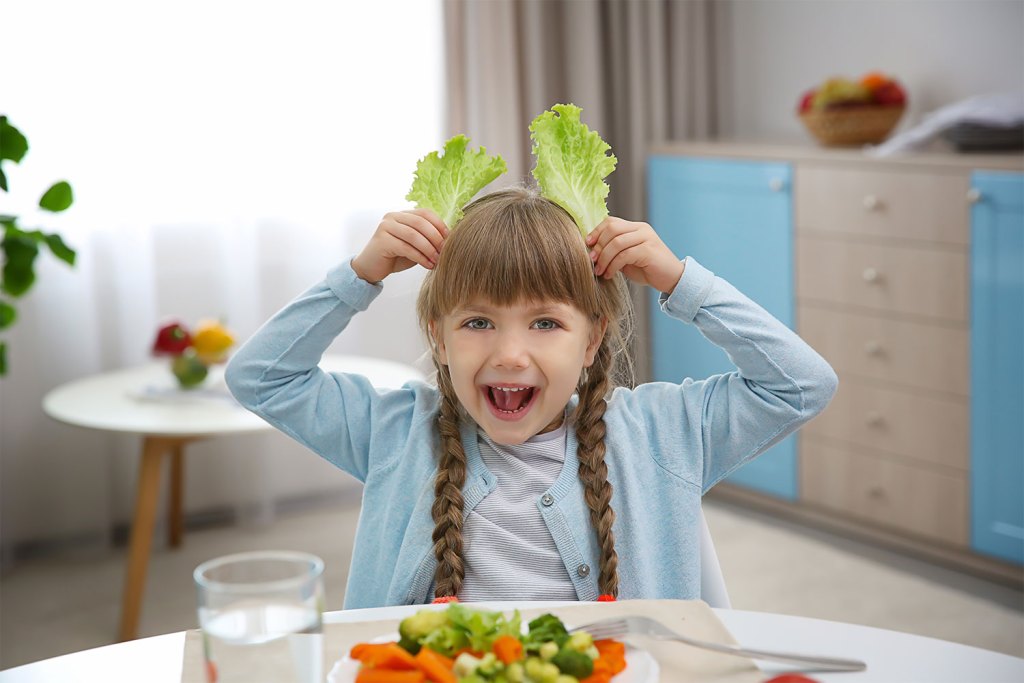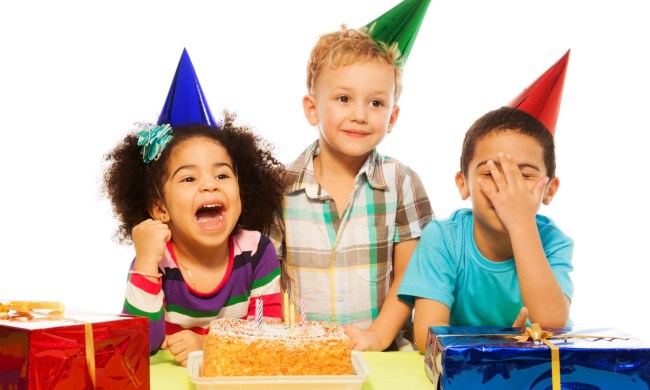Leave a toddler alone with a bowl of spaghetti, and you can guarantee you’ll return to a mess. Many parents are hesitant to let their kids play with food — not only because of the mess, but also because they want that spaghetti to end up in their stomachs, not the floor.
However, some research suggests that your kids playing with food can be a good thing.
It could prevent picky eaters
After months of breast milk and soft, homemade baby food combos, your baby probably has no idea what to do with real food. Kids who feel too restricted with their diet (or how they interact with food) may end up becoming picky eaters as they grow.

Letting your toddlers throw chicken nuggets around isn’t a cure for picky eating but is part of helping kids develop a healthy relationship with their food. If they’re having fun while they eat, they’re more likely to enjoy the food itself.
It helps them learn different foods
Many parents think of food play as “goofing off,” but it might be time to adjust your perspective. Playing with food is normal for toddlers, and it’s actually part of the learning process. A small study from 2013 found that toddlers who messed around with food were able to learn words associated with those foods at a faster rate.
At such a young age, one of the only ways your baby can learn is with the five senses: touch, taste, smell, sight, and sound. Poking their meal might seem unnecessary to us, but for toddlers, they’re just trying to figure out what you’ve put in front of them.
Playing with food can develop independent feeding habits
The path from your baby’s plate to their mouth is rarely a straight (or clean) route. While feeding your toddler yourself may keep things tidy, doing it for too long can prevent your baby from developing independent feeding habits.
At 6 or 7 months, your baby is beginning to develop the “pincer grasp,” which allows them to pick up finger foods. Before then, food play might be one way that your child begins eating independently.
Once they’ve mastered the “pincer grasp,” you can still feed them, but you shouldn’t be too surprised if your toddler begins reaching for the spoon themselves. Of course, practice makes perfect — the first couple of months of finger foods are likely to be messy.
It lets you enjoy your own mealtime
Most of the benefits surrounding food play are for your toddler, but this one’s for you. While your baby is happily making a mess, the downtime gives you a few moments to enjoy your own mealtime.

Watching you model healthy behavior helps your toddler learn, too. Over time, they’ll begin to realize that the food belongs in their mouth, not on their clothing.
When you should put a stop to food play
While a toddler who plays with their food shouldn’t be an immediate concern, there might be a point when it becomes out of control, or it’s no longer normal.
If there’s too much wasted food
A couple of noodles on the floor isn’t a big deal, but if your toddler wastes their entire plate at mealtime, that can get out of control. With food play, you want to make sure your toddler is getting something in their stomach — but keep in mind that your little one is also pretty good at figuring out when they’re full.
If they eat half their plate and play with the rest, you shouldn’t immediately assume that they’re starving or not getting enough nutrition. Your toddler may just be full and ready to go back to playtime. Keep an eye on portion sizes and growth charts if you’re worried about their nutrition.
If the mess is too much
Even if they’re still getting enough food down, food play can become an issue if you constantly have to wipe up floors or clean off walls after a meal. Aside from making your toddler wear a bib to help their clothes stay clean, you can also try putting a plastic sheet underneath the high chair to prevent the mess from extending to carpet or hardwood floors.
If they fling their plate everywhere, try using non-breakable or plastic plates.
For babies and toddlers, playing with their food is often a natural part of the learning process, and they’re not being messy on purpose. However, if the mess or waste becomes too much, you might need to look for ways to stop excess food play.
It’s also natural to assume a 6-month-old baby might fling a little food, but once your child has reached 3 or 4 years old, you shouldn’t see too much food play.


